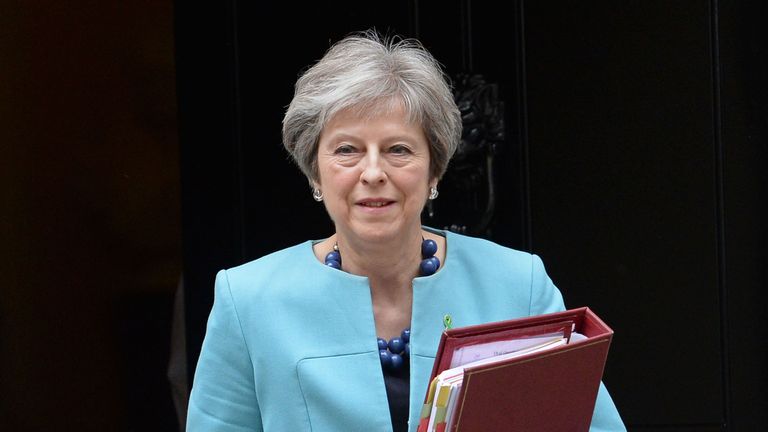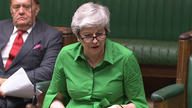Northern Ireland abortion law a 'feminist test' for Theresa May
The Prime Minister faces calls to legislate and end the differences in UK abortion law following Ireland's historic referendum.
Tuesday 29 May 2018 11:54, UK
Labour has increased pressure on Theresa May to bring Northern Ireland's abortion laws into line with the rest of the UK - claiming it is a "feminist test" for the prime minister.
Following the Republic of Ireland's historic referendum to repeal a constitutional ban on abortion, there have been calls for laws in Northern Ireland to be liberalised too.
Presently, abortion is illegal in Northern Ireland in all but the most extreme circumstances.
However, in England, Scotland and Wales, an abortion can be legally carried out up to a 24-week limit; and beyond that if there is a serious threat to the mother's life, or in cases of serious foetal disability.
Earlier this year, a United Nations committee found that the UK was violating the rights of women in Northern Ireland with current legislation.
It said abortion should be legal in the cases of rape, incest and cases of fatal foetal abnormalities.
:: Why the chances of change in NI abortion law remain slim
Labour's shadow attorney general Baroness Chakrabarti has called on the prime minister to legislate and end the differences in UK abortion law.
Writing in the Daily Mirror on Tuesday, she said: "The test of feminists is whether they stick up for all women all over the world and not just women we meet at parties.
"Women in Northern Ireland have been let down by privileged women and men for too long, the 'democratic right' here is the right of women to make difficult ethical decisions about their bodies for themselves.
"No woman should be forced to leave her family for an abortion after rape or incest and to be criminalised on return.
"This is a feminist test."
Mrs May has previously displayed her credentials as a champion for women's rights by donning a T-shirt emblazoned with the slogan "This is what a feminist looks like".
Baroness Chakrabarti's fellow Labour frontbencher, Dawn Butler, the party's shadow women and equalities secretary, posted on Twitter: "The government must act to ensure that women in Northern Ireland have the same rights as women across the rest of the UK.
"Labour is calling for the government immediately to begin negotiations with political parties in Northern Ireland about legislation to extend abortion rights."
The UK government has stressed abortion is a devolved matter in Northern Ireland.
The DUP, who Mrs May relies on at Westminster to prop up her Tory administration, are opposed to liberalising laws.
Mrs May's official spokesman said: "The prime minister said on Sunday the Ireland referendum was an impressive show of democracy... but it is important to recognise the people of Northern Ireland are entitled to their own process run by locally elected politicians."
The government's "main focus" is on restoring the devolved administration in Northern Ireland, which has been absent since January 2017, following the collapse of a power-sharing agreement, he added.
Asked if Mrs May is a feminist, the spokesman pointed to the prime minister's record in public life and "action she has taken on equal pay, domestic violence, modern slavery and to have greater female representation in House of Commons and elsewhere".
Labour backbench MP Stella Creasy wants to force a vote on the issue in the UK parliament by proposing amendments to a forthcoming domestic violence bill.
Writing in The Times, she called on MPs to support decriminalising abortion for all UK citizens by repealing past legislation.
A number of Tory MPs are reportedly ready to back liberalising abortion laws, with some current ministers also said to be privately supportive.




